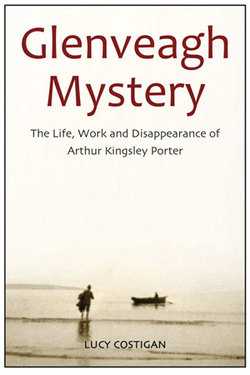Читать книгу Glenveagh Mystery - Lucy Costigan - Страница 17
На сайте Литреса книга снята с продажи.
ОглавлениеChapter five
War and Separation
As the First World War was nearing its final, desperate throes, the Porters left the safety of their privileged East Coast life to face the perils of an Atlantic voyage. They landed at Bordeaux without incident on 29 August 19181 and made their way to Paris, where they booked into the Hotel de France to await further instructions.2 They carried a letter of introduction to allow them to travel unhindered by officials. The letter was signed by Robert Lansing, the United States Secretary of State, on behalf of Kingsley’s uncle, Schuyler Merritt, who was currently serving as a representative in Congress.3
Lucy arranged lunch and dinner engagements with American friends in Paris during September and the early weeks of October.4 Travel within France was still hazardous as the Allies continued their offensive in northern France. On 12 September the Germans were forced to retreat to the Belgian border after the Battle of Havrincourt. From 18 September to 10 October, the Battle of the Hindenburg Line was fought until the Allies finally broke through German lines.
In late October, Kingsley was required to go to Italy to survey the damage inflicted on Roman monuments.5 Lucy had trouble obtaining a visa to travel into Italy, so reluctantly she decided to remain in Paris until her papers were issued.6 Kingsley was distraught at leaving Lucy behind. However, Monsieur Hubert promised that within a week Lucy would receive her papers.7 In the meantime, Lucy had her maid, Natalina, for company.8 On Friday 25 October, Kingsley travelled to Rome, alone.9 Lucy recorded in her diary entry for that day: ‘Our first separation.’10
15. Soldiers removing art works from Cathedral in Reims, c. 1918.
From Rheims and the Battles for its Possession, Illustrated Michelin Guides to the Battle-Fields (1914-1918) (Clermont-Ferrand: Michelin & Cie, 1919; published in eBook format by Project Gutenberg, 2011), p.23.
Before crossing into Italy, Kingsley met up with Monsieur Hubert and was given a busy workload, to visit churches and monuments in Dijon,11 Bourg-en-Bresse12 and other devastated regions of eastern France. He also tried to secure a pass for Lucy to allow her to travel within the war zone in Paris so that she could make an assessment of the damage inflicted on some of the churches and monuments.13
Kingsley and Lucy corresponded on a daily basis. Some days they wrote several letters to each other as well as sending telegrams and postcards. The separation was acutely painful to both. Their letters were passionate and romantic, written by two people who were very much in love and evidently distressed at being separated. Kingsley had just parted from Lucy when he wrote to her from Dijon, calling her ‘My Bobbie’, in a state of deep loneliness:
My Bobbie,
If you know how long and weary the moments of this our first (and may it be the last – until that final one comes) separation. I reached the station at eight o’clock and thought the half hour until the train left would never pass... I never so wished for time to pass before as I do now. To see you again!
... Even you will not guess how much love goes with it. Tonight I know what homesickness is like – but it is not home, it’s you.14
When he reached Bourg-en-Bresse, Kingsley was disappointed not to find a letter from Lucy waiting for him, but he surmised that she was sending the letters on to Rome.15 He wrote to her instead, telling her of the places he had visited and of the boxes of damaged art objects that he had been assessing:
